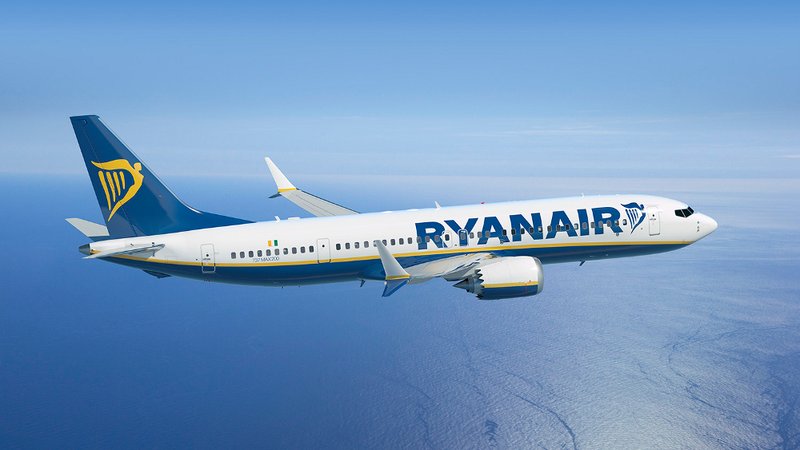Ryanair’s ‘lowest emissions airline’ claim found to be misleading

The Advertising Standards Authority has upheld complaints over a series of adverts by Ryanair, which made claims about its low emissions.
The claims were run over press, TV and radio in September 2019.
Press claims stated: ‘Europe’s Lowest Fares, Lowest Emissions Airline. Everybody knows that when you fly Ryanair you enjoy the lowest fares. But do you know you are travelling on the airline with Europe’s lowest emissions as well?’ and ‘Ryanair has the lowest carbon emissions of any major airline – 66g CO2 for every passenger kilometre flown. This is because we have the youngest fleet of aircraft (avg. age 6 years, the highest load factors (97% of seats filled) and newest most fuel efficient engines.’
The TV ad featured a voice-over which stated: ‘Fly Ryanair. Europe’s low fare, low CO2 emissions airline from just £14.99. Book Ryanair today.’
The radio ad said: ‘Fly Ryanair. Europe’s low fare, low CO2 emissions airline from just £14.99 one way… Ryanair, low fares, low CO2 emissions. Based on the top 27 European airlines.’
Complainants, including a consultant in energy, transport and sustainable development, challenged whether the claim of ‘Europe’s … Lowest Emissions Airline’ and ‘low CO2 emissions’ were misleading and could not be substantiated. Many complainants said that, by their nature, airlines did not have low emissions.
Ryanair defended its claim, saying the advert clearly explained the basis of comparison and said the factors that led to its superior performance were its young fleet, fewer empty seats and higher seat density.
It said the claim ‘low CO2 emissions’ meant ‘less than average’.
The ASA said the method used to demonstrate to a consumer how their carbon footprint would measure against journeying with another European airline, calculating CO2 per passenger distance (mile or kilometre) was an appropriate method, but the ads did not make the basis of the comparison sufficiently clear.
It said consumers would interpret the claims to mean their journeys would be contributing lower CO2 emissions than if they had chosen to travel with any other European airline.
"We did not consider consumers would understand it to mean that the CO2 emissions associated with their journey could be considered ‘low’ in absolute terms," the ASA said.
"While we considered the claims in the ads would be understood relatively and while we were satisfied that CO2 per passenger distance was an appropriate method to compare the carbon footprint of passengers on different airlines, we were concerned that the basis of the claims had not been made clear in the ads and that the evidence provided was insufficient to demonstrate that Ryanair was the lowest carbon-emitting airline on the basis of that metric.
"Consequently, we concluded that the claims ‘Europe’s…Lowest Emissions Airline’ and ‘low CO2 emissions’ were misleading."
Ryanair was told the ads must not appear again in their current forms and that, when making environmental claims, the airline holds adequate evidence to substantiate them and to ensure that the basis of those claims were made clear.
In response to the ruling, Rory Boland, Which? Travel Editor, said: "A recent Which? investigation found Ryanair flights had the joint lowest carbon emissions per passenger on the routes we analysed. However, we also found some ‘carbon offset’ schemes offered by Ryanair do little or nothing at all to reduce carbon emissions.
"Millions of travellers want to make greener choices when they go on holiday, so the regulator is right to crack down on companies that make this more difficult with misleading information."
Lisa
Lisa joined Travel Weekly nearly 25 years ago as technology reporter and then sailed around the world for a couple of years as cruise correspondent, before becoming deputy editor. Now freelance, Lisa writes for various print and web publications, edits Corporate Traveller’s client magazine, Gateway, and works on the acclaimed Remembering Wildlife series of photography books, which raise awareness of nature’s most at-risk species and helps to fund their protection.
 United Kingdom
United Kingdom United States
United States Asia Pacific
Asia Pacific












































BA suspending all Heathrow to Abu Dhabi flights
Turkish Airlines flight in emergency landing after pilot dies
Unexpected wave rocks cruise ship
Woman dies after going overboard in English Channel
Foreign Office issues travel advisory for winter sun destinations